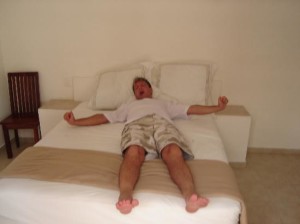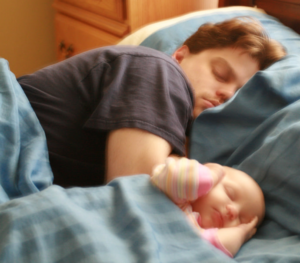In the most basic form, what it comes down to is that sleep apnea is a breathing disorder that incidentally happens at night. So if you can cure the breathing issue, can you cure sleep apnea?
Apparently, there are three types of sleep apnea and three causes, and yet, all three issues still boil down to not breathing well.
This explanation is not meant to minimize the seriousness of this issue or oversimplify the symptoms, however, what if you could think of sleep apnea in this most fundamental way? If so, you may be able to see the most straightforward way to a solution.
Indeed, many people suffer from sleep apnea, and its many symptoms and complications besides just not feeling rested during the day. What is most surprising is to realize how easy it is to develop even in children.
 Can sleep apnea be treated by using a psychological approach?
Can sleep apnea be treated by using a psychological approach?
According to accepted authors on the subject of mind-body connection, the most often root emotional issue is the inability to, refusal to, or fear to live life to the full. That means that when a person decides to “live life to the full,” whatever that means to them personally, that is one way you will find your cure for sleep apnea.
Is this possible?
Apparently, yes. So far, those that I have worked with have reported a 75 to 100% success rate. Additionally, even more than just feeling better physically, those that have taken on this positive mindset boast that their general attitude has vastly improved. These “live life to the full” advocates seem to approach everything more optimistically.
Interestingly, the shift that made all this happen occurred within the first 20 minutes of the coaching session, and with many months behind them, there is no sign of changing back. Amazing indeed!
I’m not in the habit of writing down success stories such as these, but with this dramatic “cure,” I’m going to start.
When I speak of these “clients,” I am only referring to two. But even two, being that it is 2 out of 2 is 100% success so far. This extraordinary development is worthy of announcing to the world of victims of sleep apnea.
Perhaps, if a person will think through and make a list of all the things that might be stopping them from “living life to the full,” that realization alone might make a big enough difference for them to remedy their issue so they can get some decent sleep again.
Why would anyone not be “living life to the full?” Initially, one may seem to have good reasons to choose unconsciously NOT to live life to the full. Uncovering beliefs about it being selfish, dangerous, not having the right to, etc., can be eye-opening enough that it may cause you to breathe easy and sleep well from now on.
How about you? Are you really living your life to the full? If not, what is stopping you?
If you want a little help with this issue, please let me know. I’ll explain in better detail how coaching can help correct your sleep apnea problem.
